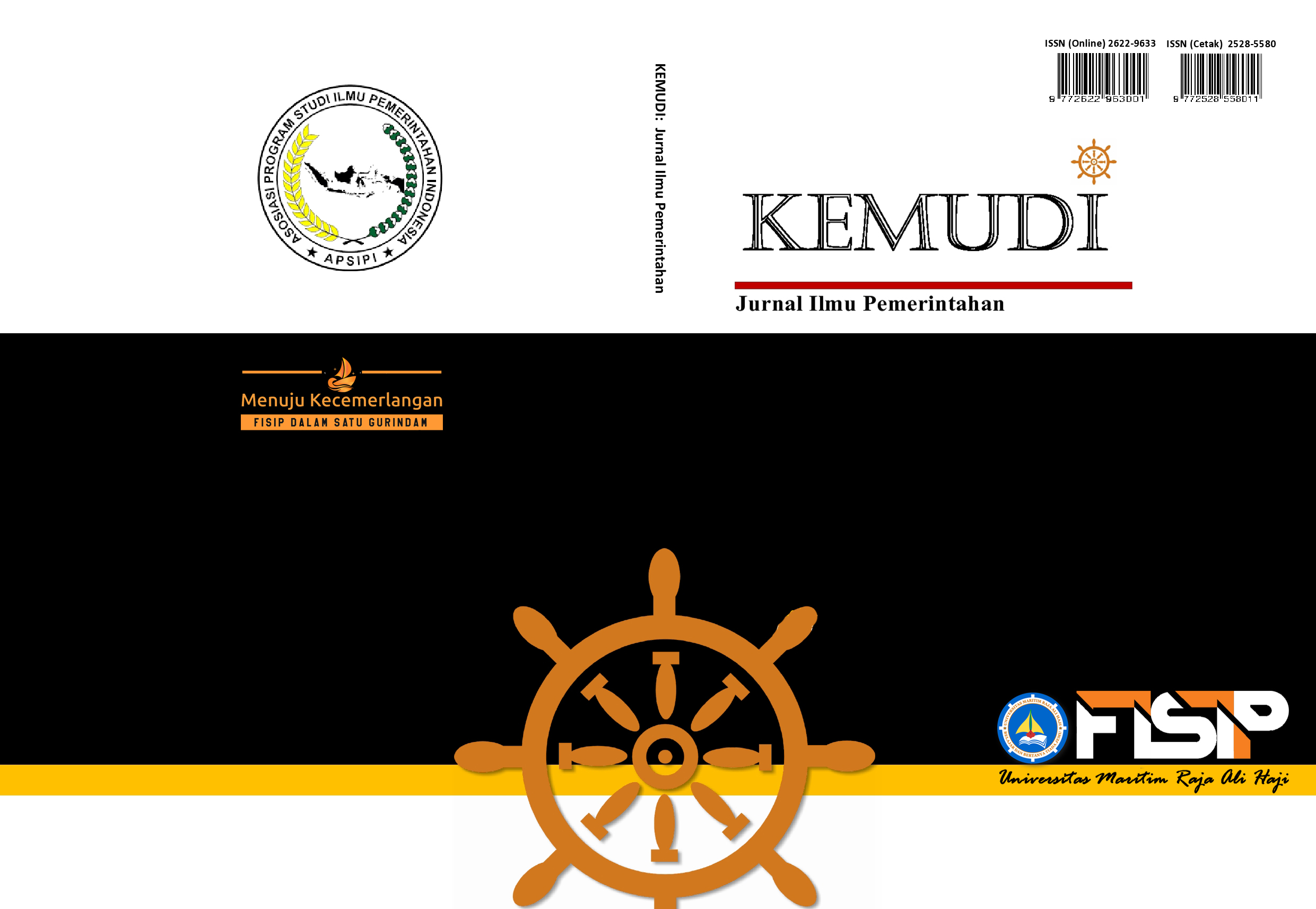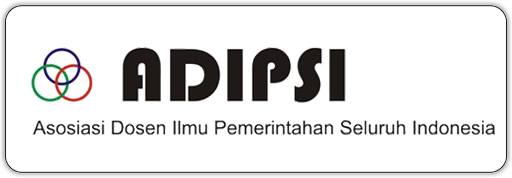Good Governance In Community Empowerment In Bababulo Village, Majene Regency
DOI:
https://doi.org/10.31629/kemudi.v8i2.6451Keywords:
Keyword 1; Good Governance Keyword 2; Community Empowerment Keyword 3. Village GovernmentAbstract
Abstract: This study aims to determine Good Governance in Community Empowerment of Bababulo Village, Majene Regency. This research was conducted using a descriptive qualitative approach. Data collection techniques used in this research include observation, interviews, and documentation. The data analysis techniques used are reduction, presentation, and conclusion drawing. The results of this study state that based on the results of research and field observations in the aspects of transparency, accountability, and responsiveness, it is concluded that good governance in empowering the Bababulo village community in Majene Regency shows maximum results. This is based on the three standard aspects that are indicators of good governance in community empowerment that can be fulfilled entirely. Although there are still some things that need to be addressed. But overall, the principles of good governance in empowering the Bababulo village community in Majene Regency can be said to be optimal. The limitation of this research is that it only focuses on analyzing the principles of good governance, the focal point of which is only three indicators of good governance principles, namely responsiveness, transparency, and accountability.
Downloads
References
Ambarwati, R., Mudjib, A. W., Lestariana, F. F., & Handiwibowo, G. A. (2019). The implications of good governance of village government office in Sidoarjo. Binus Business Review, 10(3), 147–158.
Dewi, D. A. S. (2016). Analisis Yuridis Pelayanan Publik Yang Baik Sebagai Sarana Mewujudkan Good Governance Dalam Konsep Welfare State (Juridical Analysis Of Good Public Service In Order To Create Good Governance In The Concept Of Welfare State). Negara Hukum: Membangun Hukum Untuk Keadilan Dan Kesejahteraan, 5(2), 169–187.
Huda, H. A., Suwaryo, U., & Sagita, N. I. (2020). PENGEMBANGAN DESA BERBASIS SMART VILLAGE (Studi Smart Governance pada Pelayanan Prima Desa Talagasari Kabupaten Karawang). Moderat: Jurnal Ilmiah Ilmu Pemerintahan, 6(3), 539–556
Idziak, W., Majewski, J., & Zmyslony, P. (2018). Community participation in sustainable rural tourism experience creation: A long-term appraisal and lessons from a thematic villages project in Poland. In Rural Tourism (pp. 209–230). Routledge
Keong, C. Y. (2021). Chapter 3 - The United Nations’ journey to global environmental sustainability since Stockholm: The paradox (C. Y. B. T.-G. E. S. Keong (ed.); pp. 63–212). Elsevier. https://doi.org/https://doi.org/10.1016/B978-0-12-822419-9.00003-5
Keping, Y. (2018). Governance and Good Governance: A New Framework for Political Analysis. Fudan Journal of the Humanities and Social Sciences, 11(1), 1–8. https://doi.org/10.1007/s40647-017-0197-4
Lamangida, T. (2018). Studi Implementasi Good Governance Pemerintahan Daerah Kabupaten Bone Bolango. Publik (Jurnal Ilmu Administrasi), 6(2), 119–126.
Mohajan, H. K. (2018). Qualitative research methodology in social sciences and related subjects. Journal of Economic Development, Environment, and People, 7(1), 23–48.
Pandey, P., & Pandey, M. M. (2021). Research methodology tools and techniques. Bridge Center.
Ramdhan, I. A. (2021). Penerapan Prinsip Good Governance Dalam Tata Kelola Pemerintahan Desa Margamulya Kecamatan Kawali Kabupaten Ciamis.
Rifa’i, B. (2013). Efektivitas Pemberdayaan Usaha Mikro Kecil dan Menengah (UMKM) Krupuk Ikan dalam Program Pengembangan Labsite Pemberdayaan Masyarakat Desa Kedung Rejo Kecamatan Jabon Kabupaten Sidoarjo. Sumber, 100(100), 2–59.
Rumalolas, R., & Wajdi, M. F. (2018). Pengaruh Good Governance Terhadap Kinerja Pegawai Satuan Kerja Perangkat Daerah di Kabupaten Seram Bagian Timur Provinsi Maluku. Universitas Muhammadiyah Surakarta.
Savona, P., & Simonati, A. (2019). Transparency in Action in Italy: The Triple Right of Access and Its Complicated Life. The Laws of Transparency in Action: A European Perspective, 255–293.
Shao, D., Mwangakala, H., Ishengoma, F., Mongi, H., Mambile, C., & Chali, F. (2023). Sustenance of the digital transformations induced by the COVID-19 pandemic response: Lessons from Tanzanian public sector. Global Knowledge, Memory and Communication, 72(6/7), 700–713.
Supriyanto, E. E. (2016). Kebijakan Inovasi Teknologi Informasi (IT) Melalui Program Elektronik Government dalam Meningkatkan Kualitas Pelayanan Publik di Indonesia. JIP (Jurnal Ilmu Pemerintahan): Kajian Ilmu Pemerintahan Dan Politik Daerah, 1(1), 141–161. https://doi.org/10.24905/jip.1.1.2016.141-161
Suryo, H. (2016). Pemberdayaan Masyarakat Dalam Pengembangan Kemandirian Masyarakat. Transformasi, 1(29).
Sutarsa, M. (2019). Pengaruh Good Governance Dan Komitmen Organisasi Terhadap Kinerja Dinas Pemerintah (Sensus pada Dinas Kota Tasikmalaya). Universitas Siliwangi.
Wibisono, A. G. (2014). Revitalisasi Prinsip-Prinsip Good Governance dalam Rangka Penyelenggaraan Pemerintahan yang Baik, Bersih, dan Bebas Korupsi, Kolusi, serta Nepotisme. Diponegoro University.
Zou, Q., Mao, Z., Yan, R., Liu, S., & Duan, Z. (2023). Vision and reality of e-government for governance improvement: Evidence from global cross-country panel data. Technological Forecasting and Social Change, 194, 122667. https://doi.org/https://doi.org/10.1016/j.techfore.2023.122667
Downloads
Published
Issue
Section
License
Copyright (c) 2024 KEMUDI : Jurnal Ilmu Pemerintahan

This work is licensed under a Creative Commons Attribution-NonCommercial-ShareAlike 4.0 International License.













